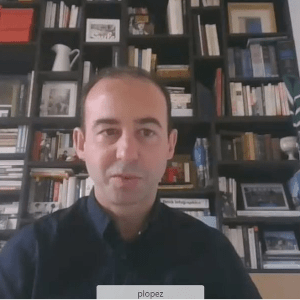The Belgian Consultative Committee decides on the end of the Easter break
Yesterday, April 14th, the federal government and the governments of the federated entities discussed the coronavirus situation in the Consultative Committee.
The committee notes that the pressure in the healthcare system remains relatively high, especially in the intensive care units. More than a third of all hospitalized patients with coronavirus are in intensive care. This is a much higher proportion than a year ago or last autumn. Due to the spread of new variants of the virus, the face of the pandemic has changed: it has become not only more contagious, but also more aggressive. However, the committee also observes a positive evolution of some key figures:
- The average daily number of infections with COVID-19 is decreasing;
- The number of hospital admissions is starting to fall;
- The reproduction rate is falling below 1.
In addition, the Consultative Committee notes the sustained acceleration of the vaccination rhythm. By April 19th, 60% of the 65+ age group should have received the first dose; by April 26th, this share should be over 70%; and by the end of this month, it should even be over 80%. Moreover, we expect that by the end of May, more than 80% of people in the 18-65 age group with co-morbidities should have received a first dose. According to science, a high level of immunity is achieved two to three weeks after the first injection.
On the basis of all this evidence, the Consultative Committee took the following decisions:
1. Reopening of schools
After the Easter holidays, classes will resume on April 19th under the regime in force before the Easter break. In concrete terms, this means the following:
- Kindergarten, primary education, special secondary education, first level of secondary education and intermediate courses: 100% attendance;
- Second and third level of secondary education: 50% face-to-face;
- Higher education: physical presence on campus one day a week;
- Examinations may be held in person.
If the contamination rates evolve favorably, and after an evaluation by the Ministry of Education, which will be submitted to this committee, 100% classroom-based secondary education may be resumed from May 3rd.
2. Non-essential travel: strict testing and quarantine regime
The prohibition of non-essential travel within the EU ends on April 19th. For travel outside the EU, communitarian rules still apply. All non-essential travel is still strongly discouraged.
Upon return, travelers must follow a strict regime of mandatory testing and quarantine. The Passenger Location Form (PLF) will allow police to track people who fail to be tested on their return. Anyone who fails to comply with the testing rules is liable to a fine of €250.
3. End of Easter break for shops and non-medical contact professions
On April 26th, the Easter break will come to an end. This means the following:
Gatherings of up to 10 people will be allowed outdoors.
From that date onwards, non-essential shops will also be able to welcome customers again without an appointment. Shoppers no longer have to go shopping alone but can be accompanied by another member of the household.
Non-medical contact professions – such as hairdressers and beauty specialists – will be able to reopen under stricter protocols.
At the same time, around 30 experiments and pilot projects will be launched to establish from scientific point of view a way to safely restart various economic activities or to avoid their closure in the future.
4. Seven out of ten people aged 65 and over vaccinated and protected: Plan for outdoor activities
On May 8th, when almost all people over-65 have been vaccinated and protected, a broad plan for outdoor activities will come into effect.
Organized activities (i.e. activities of sports clubs or associations) will be allowed to bring together a maximum of 25 people outdoors and of all ages, but with no public or overnight stay. Children up to the age of 12 may be indoors with a maximum of 10.
In addition, the following will again be allowed outside:
- Restaurants and cafés: outdoor terraces
- Events (including receptions and banquets), cultural performances and worship services up to a maximum of 50 people
- Amusement parks
- Professional flea markets
The curfew will be abolished and replaced by a prohibition on gathering: between midnight and 5.00 a.m. one may be in the public space with a maximum of three people or with members of one’s own household.
5. Two close contacts at home
From May 8th onwards, one home will be able to accommodate two people from the same home at the same time, not including children up to the age of 12.
6. Nearly all people aged 65 and over and vulnerable people vaccinated and protected: a broader perspective
An important new milestone will be reached when almost all people aged 65 and over and those with co-morbidities have been vaccinated and protected. We expect a high rate of immunity in these groups by the first half of June. If the figures allow it, especially the occupancy rate in intensive care units, the “outdoor plan” will be further expanded and a plan for indoor activities may be considered, provided that the pressure on intensive care has been relieved for a long time, so that quality care is guaranteed for Covid and non-Covid patients.
7. Importance of vaccination
The committee notes that in some parts of the country too few people attend to their vaccination appointments. Vaccination is the only option for a structural and safe exit from the pandemic. Vaccines are safe and effective. Potential side-effects are very rare and mild, when compared to Covid symptoms, which are more frequent and mortal. Protect yourself and those around you by getting vaccinated.


